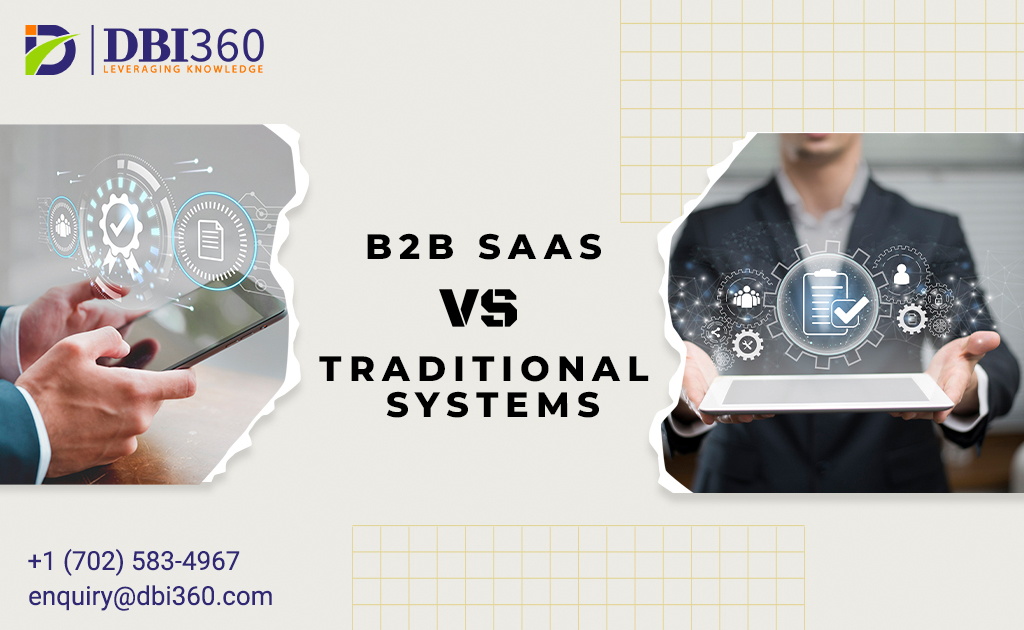In the digital era, technology plays a crucial role in driving operational efficiency and growth for businesses across various industries. The same also applies for the nutraceutical sector. When it comes to managing operations and processes, nutraceutical companies have two options. They can either choose between traditional systems or B2B (Business-to-Business) SaaS (Software as a Service) solutions. Each approach has its own advantages and considerations. In this blog, we will explore the differences between B2B SaaS and traditional systems and discuss what works best for nutraceutical businesses.
Understanding Traditional Systems
Traditional systems refer to on-premises software solutions installations locally on a company’s servers or computers. These systems typically fall in the category of as one-time licenses and require IT infrastructure and ongoing maintenance and support. Traditional systems often involve higher upfront costs, longer implementation times, with scalability limitation.
Exploring B2B SaaS Solutions
B2B SaaS solutions, on the other hand, are cloud-dependent software applications accessed over the internet. These solutions typically come in the offer of a subscription basis, allowing businesses to access the software and its features remotely without the need for extensive infrastructure investments. B2B SaaS solutions are popular for their flexibility, scalability, and regular updates and enhancements from by the service provider.
Advantages of B2B SaaS for Nutraceutical Businesses:
Perks of B2B SaaS Solutions are numerous. Some of them are available in the below pointers-
Cost-effectiveness: B2B SaaS solutions often have lower upfront costs and predictable monthly or annual subscription fees, making them more budget-friendly for nutraceutical businesses, especially startups or small and medium enterprises (SMEs).
Scalability and flexibility: Nutraceutical companies can easily scale their operations up or down based on demand with B2B SaaS solutions. The cloud-dependent nature of these solutions allows for seamless integration with other software and APIs, enabling customization and adaptability.
Accessibility and collaboration: B2B SaaS solutions provide the advantage of remote access, allowing employees to work from anywhere with an internet connection. This enhances collaboration among team members, suppliers, and partners, even if they are geographically not present in the same place.
Regular updates and innovation: Service providers of B2B SaaS solutions continually update and enhance their software, ensuring that nutraceutical businesses have access to the latest features, security patches, and regulatory compliance requirements without the need for manual updates.
Considerations for Nutraceutical Businesses:
Wondering what to look for in a business in nutraceutical business? Here are a few pointers that you must consider before integrating SaaS solution for your business-
Data security and privacy: Nutraceutical companies must carefully evaluate the data security measures and protocols of B2B SaaS providers to ensure the protection of sensitive information, customer data, and intellectual property.
Integration with existing systems: Nutraceutical businesses with established legacy systems need to assess the compatibility and integration capabilities of B2B SaaS solutions to ensure seamless data flow and eliminate potential disruptions.
Customization limitations: While B2B SaaS solutions offer flexibility, there may be limitations in terms of customization to specific business needs. Nutraceutical businesses should evaluate whether the available features and functionalities meet their unique requirements.
The Bottom Line
When choosing between B2B SaaS and traditional systems for nutraceutical businesses, it’s important to consider factors such as cost, scalability, accessibility, security, and integration requirements.
B2B SaaS solutions offer several advantages, including cost-effectiveness, scalability, and regular updates, making them a favorable choice for many nutraceutical companies.
However, businesses must carefully assess their specific needs and conduct thorough research to determine which approach aligns best with their operational requirements, growth plans, and IT infrastructure. Ultimately, the decision should prioritize long-term efficiency, productivity, and competitiveness in the dynamic nutraceutical industry.

